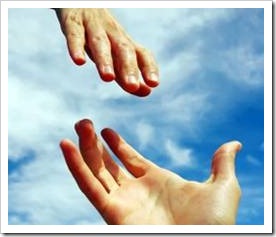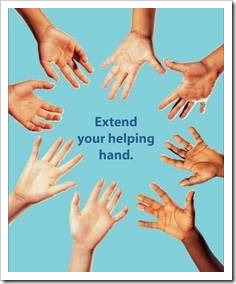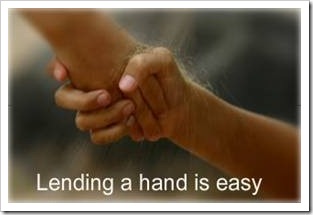
Ring Leader – These are kids in power who orchestrate a bullying act by using their social influence. They do not bully directly but use a bully’s weakness to harass other weak kids.
Associates – These are children who actively join the bully. It could be because they are afraid of the bully or the ring leader, but they do not initiate the bullying themselves. In some strange way, they are also victims.
Reinforcers – These kids do not bully directly but give a feedback to the bully by commenting, smiling or laughing. They do not initiate an act of bullying towards other kids, but they increase the bully’s confidence by being a supportive audience.
Outsiders – These children are on the victim’s side, but they keep quiet when they witness an act of bullying. They are afraid of the bully, so they say nothing and do nothing in order to avoid drawing any attention to themselves.
Defenders – These kids are rare. They intervene and actively try to stop the bully and comfort the victim.
As you can understand, the involvement or un-involvement of all these characters can make a huge difference to the frequency and intensity of the bullying in any environment. On average, kids who get involved and defend a bullied victim stop the bullying act within 10 seconds. We need more of them!
In the previous 4 posts, I wrote 100 tips to help victims of bullying. In the next 2 posts, I will write 50 tips to help the bystanders. Some people may find some of the tips challenging, but they are all worth reading and applying.
How to help bullying bystanders

- Do not associate with bullies – Bullies are weak people. If you take a part in a bullying act, even if it is not directly, you are weak too. One day they will use your weakness against you.
- Do not join in with the bully – Bullies are terrorists and their weapon is fear. The difference between terrorists and bullies is the scale and that terrorism is more organized, but both are bad and illegal. If you help a terrorist, you are partly responsible.
- Offer to help and be generous in your social group. This will strengthen your position as a social leader.
- When you walk to school and you see someone walking on their own, offer to walk with them. It is amazing how much bullying you can prevent this way.
- When you ride the bus with someone who gets bullied, sit next to them. This will prevent the bullies from sitting next to them and picking on them.
- Hang around popular kids. Make sure they are not bullies and be with them, because there is less bullying around them.
- If a bully tells you a secret that means someone is going to get hurt, tell an adult. Tell someone you trust.
- Understand that even if bullying is not done to you, you suffer from it, because the environment you are in is based on fear and people in fear are suspicious and cannot enjoy life completely. Having suspicious friends is no fun at all, because they can easily misinterpret your words as offensive.
- If you are a popular kid and you use bullies to hurt others on your behalf, it is important for you to understand that you are the most responsible for the bullying act. In any crime, the person who gives the order to commit the crime receives the worst punishment. You do not have to hurt someone directly to be considered a bully. Stop it.
- If you see bullying against someone else, walk away! Bullies love audience, so if you feel powerless to stop them, at least do not give them the pleasure of watching their show.
- If you see someone else being bullied, find an adult and tell them about it.
- If you are involved in bribing someone, understand you are taking a part in a bullying act.
- If you watch a bullying act, shout “The teacher is coming” and run away. If you say it loudly enough, everyone will run away and the bullied victim will be saved.
- When you think of defending a victim, consider if it is safe to do so. There is no point getting hurt yourself. Sometimes, it is better to get help.

- If you discover someone is being bullied, tell someone you trust, preferably an adult.
- If you know of someone who is bullied, tell a friend. Sometimes, if you spread the word, the third, fourth or fifth person hearing about it feels safe enough to report it.
- Understand that telling on someone who is a bully is not ratting. It is standing up for what is right! If you are not sure, ask the adult if what you are describing is bullying without mentioning names.
- Smile at the person who is bullied. This will make them feel a bit better, as if you are on their side and they are not alone.
- Have a good relationship with your family. Kids who grow up in supportive and caring families are less likely to be bullied. It is the same for grownups. If they have good relationships at home, they are less likely to be bullied at work, because their home is a source of confidence for them.
- Never seek the approval of a bully. If you need their approval, it means they are using you for their needs. Once you are on the bully’s favorites list, you become part of their bullying gang.
- Do not be tempted to believe there is something cool in bullying someone. Bullies have very good ways of convincing their supporters that there is something cool about damaging property, hurting someone or humiliating them. If you are convinced, you are just another kind of a bully. There is NOTHING cool about bullying, not even for the bully.
- Never cover up for a bully. Bullies are afraid of being caught, so they will tell you not to tell anyone. Not telling on a friend is one thing, but covering up for a bully is just like helping.
- Tell the bully “I wouldn’t do that if I were you”. This sounds like you care for the bully and are giving them good advice, rather than telling them what to do. It may create doubt in their belief that bullying is a good approach.
Join me next week for another 25 anti-bullying tips for bystanders.
Happy day,
Ronit
This post is part of the series Bullying:
- Bullying Facts and Myth
- Bullying Statistics are Scary
- What is NOT Bullying?
- Types of Bullying
- Why Do People Bully?
- Victims of Bullying
- Bullying Bystanders
- Home of the bully
- Home of the bully (2)
- Workplace Bullying
- Workplace Bullying (2)
- How to Help Bullying Victims
- How to Help Bullying Victims (2)
- How to Help Bullying Victims (3)
- How to Help Bullying Victims (4)
- How to Help Bullying Bystanders
- How to Help Bullying Bystanders (2)
- How to Stop Workplace Bullying
- How to Stop Workplace Bullying (2)
- How Workplace Bullying Bystanders Can Break the Cycle
- How Organizations Can Stop Bullying
- How Organizations Can Stop Bullying (2)
- Bully Parents
- How to Stop Parental Bullying
- How to Stop Parental Bullying (2)
- How to Stop Parental Bullying (3)
- How to Stop Parental Bullying (4)
- How to Stop Parental Bullying (5)
- How to Stop Parental Bullying (6)
- How to Stop Parental Bullying (7)
- How to Stop Parental Bullying (8)
- How to Stop Parental Bullying (9)
- How to Stop Parental Bullying (10)
- How to Stop Parental Bullying (11)
- How to Stop Bullying with Empathy: The Story of Two Apples













